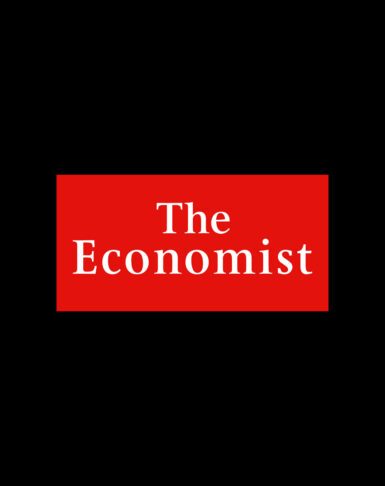This article originally appeared in The Drum.
In an era where brand messages fight for oxygen across an ever-expanding list of overcrowded channels and platforms, Philip Davies believes there’s one discipline marketers can’t afford to lose: the ability to keep things simple.
Davies, EMEA president at Siegel+Gale and the vice president of the jury for the Design categories in this year’s The Drum Awards Festival, argues that while marketing has never had more tools at its disposal, the proliferation of platforms and messages has made clarity of purpose more critical than ever.
He says: “One of our key ambitions is to help brands uncover what’s truly interesting about them – the thing that will genuinely resonate with the people they want to reach. Guided by our ethos of Simplicity, it’s about stripping away the unnecessary, focusing on what’s essential, and building the ultimate currency of trust.”
Founded in 1969, Siegel+Gale is a global brand consultancy specializing in strategy, design, experience, and naming, helping organizations cut through complexity to connect more meaningfully with their audiences. Its client roster spans multiple sectors, including CVS Health in healthcare, the US Army in government, Wells Fargo in financial services, and SAP in technology, reflecting its ability to simplify even the most complex brands.
In Davies’s view, the brands that articulate their truth concisely and consistently not only stand out in the noise but build a long-term bond with their audiences. The challenge, he says, is that many brand owners have become enamored with showing rather than connecting. The result? Drifting from the art of persuasion.
“It’s not enough to simply present yourself,” says Davies. “Brands today need to persuade – but many still lack a real connection with buyers. True persuasion comes from charm, wit, and entertainment, qualities that aren’t as present as they once were.” For Davies, persuasion isn’t about gimmicks; it’s about delivering relevance in a way that inspires people to act.
And yet, he believes this ability has been dulled by a culture of caution at the top of many businesses. When asked why brands seem reluctant to take creative risks, Davies says: “Too many finance directors are becoming CEOs. Natural caution, shareholder value, and people being concerned about making bold moves. The way humans communicate and interact has become textbook. That’s led to similar, formulaic work. The freshness goes out of it, which is why awards are important – they spotlight what’s new, obvious and useful.”
It’s an assessment grounded in the realities of corporate governance. For Davies, the answer isn’t to abandon rigor, but to pair it with curiosity, courage, and a willingness to surprise.
One of the tools he uses to cut through is borrowed from an unlikely place: US patent law. “Is it new? Is it non-obvious and is it useful? If a brand or an idea can say yes to all those things, then you’ve probably got something that is saleable and relevant. It’s a very useful rule of thumb for is this a good brand idea?”
This simple framework, he says, forces both client and agency teams to focus on what will genuinely resonate with audiences rather than what will simply tick an internal approval box.
Like most leading brand agencies, Siegel+Gale is integrating AI into its workflows, but Davies is quick to position it as an enabler rather than a threat.
“We work with it in a complementary way, rather than trying to compete with it. Every client will have asked AI the same question they’re asking us. Siegel+Gale’s distinction is our experience, relationships, and discernment. The final 5% of almost anything makes all the difference, and that’s still very much a human component.”
From accelerating research and synthesizing large datasets to generating creative variations, AI has already changed the agency’s pace of delivery. But Davies insists the decisive factor is still the human judgment to spot when something is truly fresh, relevant, and brand-aligned.
Internally, the business has created an AI specialist team with representatives from each office to track emerging capabilities and feed them into a bespoke Siegel+Gale AI model. This, he says, is being used to maintain brand tone of voice globally and ensure consistency across teams and markets.
Davies likens his approach to a philosophy shared by one of his sporting heroes, Formula One champion Niki Lauda: “There’s no secret. I just try to win going as slowly as possible. I love that philosophy that there’s a simplicity there, which is like, okay, look, I’m removing friction, I’m taking away complexity and I’m gonna be successful. There’s something really quite beautiful about that.”
In branding terms, that means ensuring implementation is seamless, messaging is instinctive, and teams can confidently express who they are.
As judging day approaches, Davies has a clear vision of the work that will stand out to him in this year’s Design categories. “Relevant work that has absolute clarity. Delightfully surprising things. Great language – people remember words and design that feel like they haven’t been used before. Original thinking, fresh language and work that is useful.”
“I always enjoy seeing the best out there. I got into this business because I’m a practitioner. I love to see the work and still enjoy assessing and analyzing it – trying to unpick how it got there. I enjoy it as a practitioner, as an exercise.”
For Davies, trends will come and go, technologies will reshape the design and brand toolkit, and new platforms will continually fragment the media landscape. But the one competitive advantage that will never lose its potency is a brand’s ability to articulate its essence clearly, memorably, and persuasively.
His final piece of advice to any marketer struggling to cut through the noise of 2025?
“Simplicity.”


